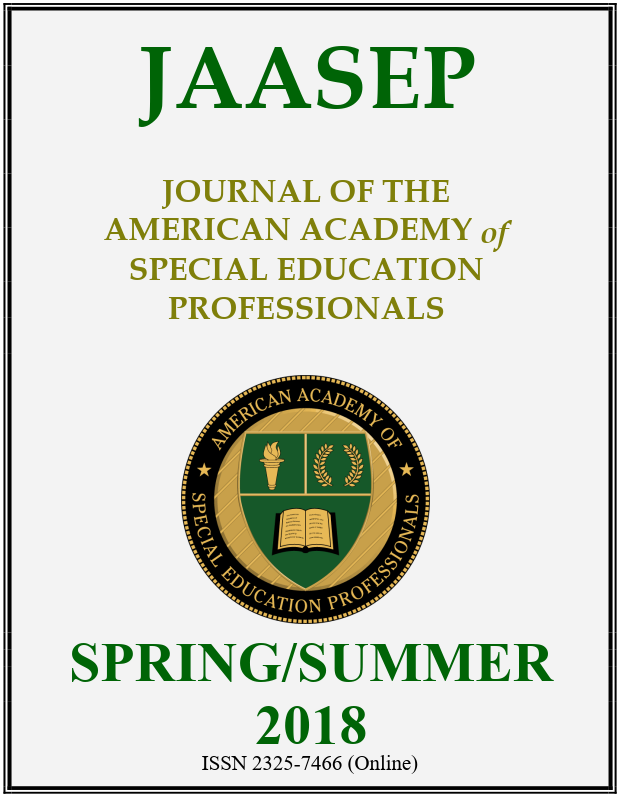Supporting Students with Disabilities During Group Activities: Five Tools Every Inclusive Mathematics Educator Needs
Dweck, C. S. (2008). Mindset: The new psychology of success. Random House Digital, Inc.
Grumbine, R., & Alden, P. B., (2006). Teaching science to student with learning disabilities. NSTA WebNews Digest. Retrieved from http://www.nsta.org/publications/news/story.aspx?id=51706
Hartman-Hall, H. M., & Haaga, D. A. (2002). College students' willingness to seek help for their learning disabilities. Learning disability quarterly, 25(4), 263-274. DOI: https://doi.org/10.2307/1511357
Heiman, T., & Precel, K. (2003). Students with learning disabilities in higher education: Academic strategies profile. Journal of learning disabilities, 36(3), 248-258. DOI: https://doi.org/10.1177/002221940303600304
Johnson, D. W., & Johnson, R. T. (2009). An educational psychology success story: Social interdependence theory and cooperative learning. Educational researcher, 38(5), 365-379. DOI: https://doi.org/10.3102/0013189X09339057
Levin, J., & Nolan, J. F. (2013). Principles of classroom management: A professional decision-making model. Pearson Higher Ed.
Long, N. J., & Newman, R. G. (1980). Managing surface behavior of children in school. Conflict in the Classroom: The education of emotionally disturbed children (94th ed.). Belmont, CA: Wadsworth.
Rosenshine, B. (2012). Principles of instruction: Research-based strategies that all teachers should know. American Educator, 36(1), 12-39.
Sayeski, K. L., & Brown, M. R. (2011). Developing a classroom management plan using a tiered approach. Teaching Exceptional Children, 44(1), 8-17. DOI: https://doi.org/10.1177/004005991104400102
Simonsen, B., Fairbanks, S., Briesch, A., Myers, D., & Sugai, G. (2008). Evidence-based practices in classroom management: Considerations for research to practice. Education and Treatment of Children, 31, 351-380. DOI: https://doi.org/10.1353/etc.0.0007
Slavin, R.E. 1995. Cooperative learning. Boston, MA: Allyn & Bacon.
U.S. Department of Education, National Center for Education Statistics. (2015). The digest of education statistics, 2013 (NCES 2015-011). Retrieved from http://nces.ed.gov/fastfacts/display.asp?id=59
Downloads
Article Information
- Article Type Articles
- Submitted April 15, 2018
- Published June 15, 2018
- Issue Spring/Summer 2018
- Section Articles
